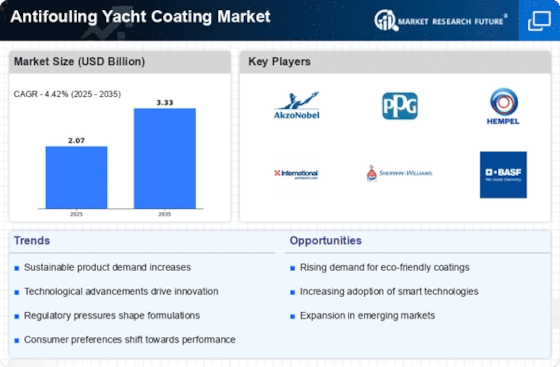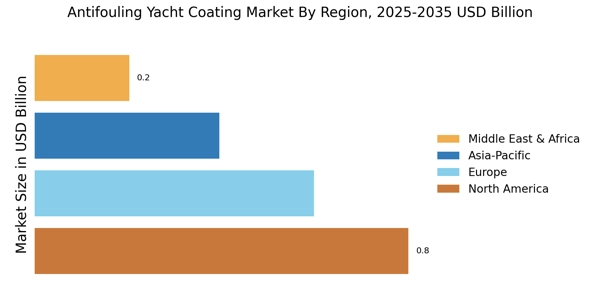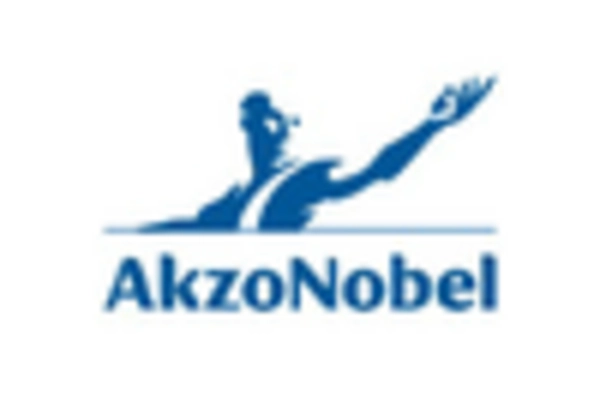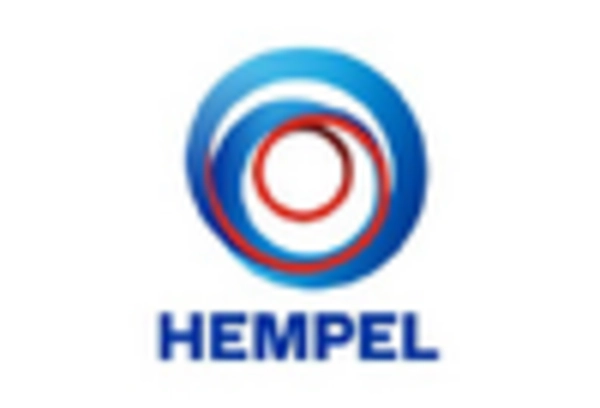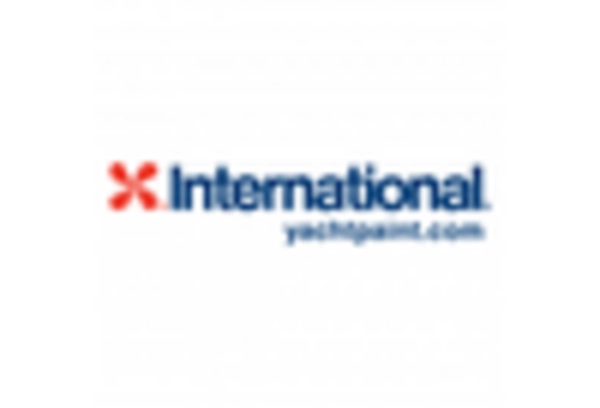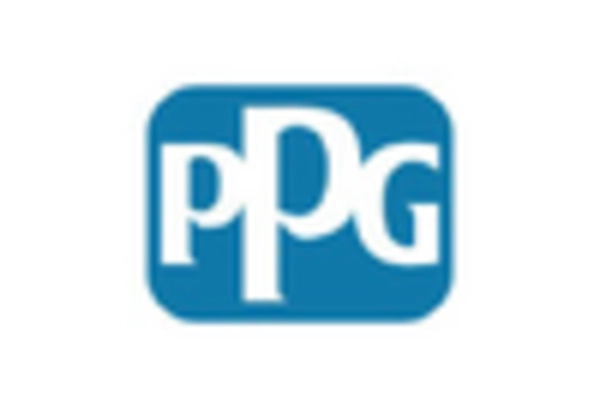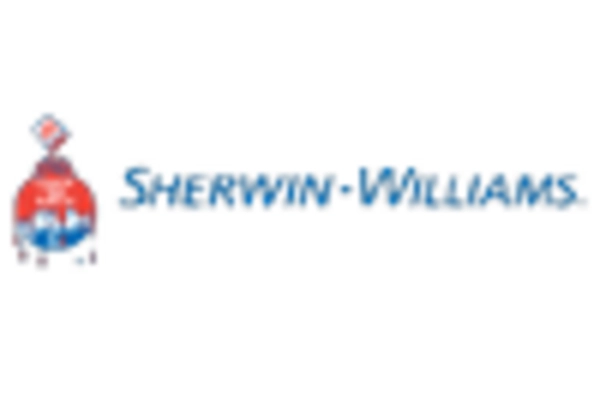Increasing Demand for Yacht Maintenance
The Antifouling Yacht Coating Market experiences a notable surge in demand driven by the increasing need for yacht maintenance. As yacht ownership rises, particularly among affluent individuals, the necessity for effective antifouling solutions becomes paramount. Antifouling coatings play a crucial role in preserving the integrity of yachts by preventing the growth of marine organisms that can cause damage. According to recent data, the yacht maintenance sector is projected to grow at a compound annual growth rate of approximately 5.2% over the next few years. This growth is likely to bolster the Antifouling Yacht Coating Market, as yacht owners seek reliable and efficient coatings to extend the lifespan of their vessels.
Growth of the Recreational Boating Sector
The Antifouling Yacht Coating Market is poised for growth, largely due to the expansion of the recreational boating sector. As more individuals engage in leisure boating activities, the demand for yachts and associated maintenance products, including antifouling coatings, is on the rise. Recent statistics suggest that the recreational boating market has seen an increase in participation rates, with a notable rise in new boat registrations. This trend indicates a burgeoning market for antifouling solutions, as yacht owners seek to protect their investments from the adverse effects of marine fouling. Consequently, the growth of the recreational boating sector is likely to propel the Antifouling Yacht Coating Market forward.
Rising Awareness of Marine Ecosystem Protection
The Antifouling Yacht Coating Market is increasingly influenced by rising awareness regarding marine ecosystem protection. As environmental concerns gain prominence, yacht owners are becoming more conscious of the ecological impact of traditional antifouling coatings. This awareness drives demand for sustainable alternatives that minimize harm to marine life. Market Research Future indicates that consumers are willing to invest in eco-friendly antifouling solutions, which could lead to a shift in purchasing behavior. Consequently, manufacturers in the Antifouling Yacht Coating Market are likely to focus on developing products that align with these environmental values, thereby fostering growth in the sector.
Regulatory Pressure for Environmental Compliance
The Antifouling Yacht Coating Market is significantly influenced by regulatory pressures aimed at environmental compliance. Governments and maritime organizations are increasingly implementing stringent regulations regarding the use of harmful substances in marine coatings. This trend compels manufacturers to innovate and develop eco-friendly antifouling solutions that meet these regulations. For instance, the International Maritime Organization has set guidelines that restrict the use of certain biocides in antifouling paints. As a result, the market is witnessing a shift towards environmentally friendly alternatives, which could potentially enhance the growth of the Antifouling Yacht Coating Market as companies adapt to these evolving standards.
Technological Advancements in Coating Technologies
Technological advancements are reshaping the Antifouling Yacht Coating Market, as innovations in coating formulations lead to enhanced performance and durability. New technologies, such as the development of self-polishing and biocide-free coatings, are gaining traction among yacht manufacturers and owners. These advancements not only improve the effectiveness of antifouling solutions but also reduce the environmental impact associated with traditional coatings. Market data indicates that the adoption of advanced coating technologies is expected to increase by 7% annually, reflecting a growing preference for high-performance products. This trend is likely to drive the Antifouling Yacht Coating Market towards more sustainable and efficient solutions.


